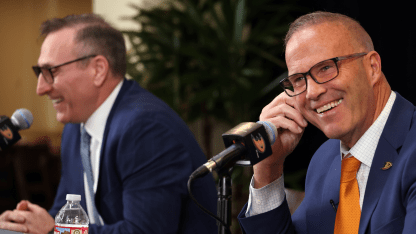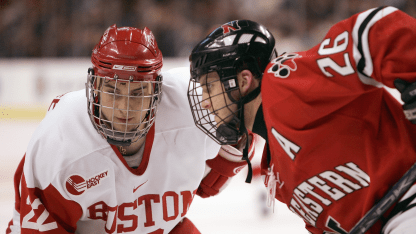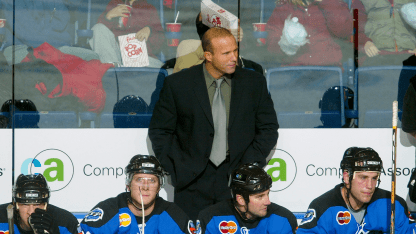"He told me early, 'Joe, you can play in the NHL and I promise you, if you come underneath me, I'm going to make you a better college player, but my goal for you is to be ready to be a professional by the time you're done,'" Vitale said. "And I remember when we lost my senior year, I went right to Wilkes-Barre/Scranton (Penguins AHL affiliate) and in the first pregame speech, I knew right away that this is what I've been hearing for the last four years. The details of the game, the polishing of the game and the systems, I knew to a T. So I stepped in that first game and I don't think I was a healthy scratch at all my first year.







